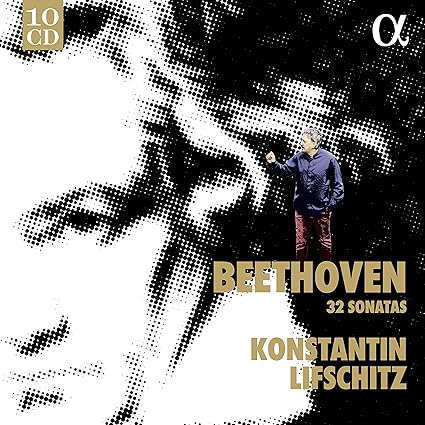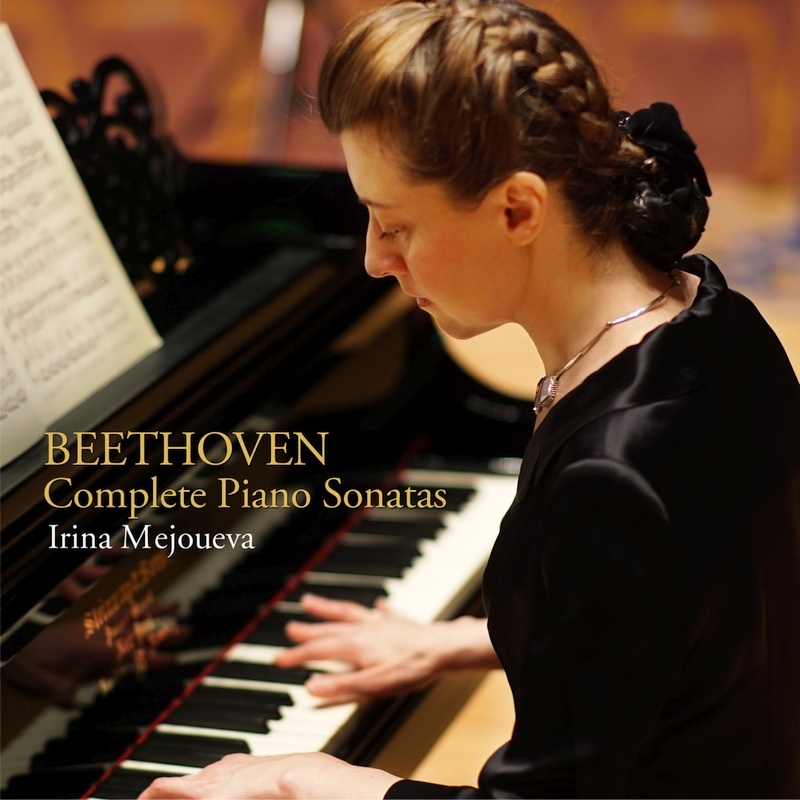Slow. Lotsa slow stuff in this set. One can glean that from some of the timings, not least the 54'+
Hammerklavier, with its 25'+ Adagio. How one feels about slow Beethoven may inform the decision to buy or listen to this set. Not me, of course, I preordered the first day the set was avaialble and waited anxiously for it to arrive. Out of the gate, the first two Op 2 sonatas sounded spontaneous, at least in places - aided by the live recording - but they also sounded a bit heavy for the material and a bit off-kilter, with extra-slow slow movements. With Op 2/3, Lifschitz finds his groove, or rather my taste aligns with his approach, and he demonstrates that he can do the virtuosity thing. This sonata starts a fairly long chain of high-grade, if slightly idiosyncratic takes on the sonatas. Op 7 is really very fine, with perfectly judged opening and slow movements, all three Op 10 sonatas sound just swell, as does the weighty Op 13, the almost but not quite overdone Op 14 sonatas, and the extremely fine Op 22. Here, somewhat against expectations, Lifschitz's slow approach to the slow movement really pays dividends, and the whole sonata is superb. Everything cruises along nicely until Op 31/1. The strange thing is that I thought all of Op 31 would work splendidly. Lifschitz adds spontaneity to an obviously well thought approach, and I started to think of him as basically a spontaneous neo-Kuerti. Except for 31/1. I'm not a huge fan of Kuerti's cycle overall, but he delivers one of the great 31/1s, but Lifschitz whiffs. The opening movement is a bit broad, but the 14'+ slow movement is just too much. And the finale also drags. 31/2 is also too slow, but Lifschitz's tendency to play dynamic extremes well helps here, though the slow movement is again too slow. 31/3 is good, with more energy, and the Op 49 sonatas are nice enough. The 50s are mixed. The tendency toward slowness makes the Waldstein drag a bit in places, and the stark dynamic contrasts are not nuanced enough. This latter tendency also informs Op 54, and Op 57 at times comes close to banging, though in person I'm sure it would work. Things then sort of cruise along at a good or very good level until Op 101, which sounds too heavy, kludgy, and almost sloppy in the fugal music, something which reappears in the finale movement of Op 106, which itself has a saggy, way too slow slow movement. The day I listened to the last three sonatas I also happened to revisit Fazil Say's recent set, and listening to both on the same day offers a fairly stark contrast. Both tend toward individuality almost to a fault, but there's something more
right about what Say does. It just jells more, and the playing is more refined. To be sure, there are good things in the last three works from Lifschitz, but they're not as elevated as I like, and the half-hour plus Op 111 is again too slow for me. So, as with his set of Violin Sonatas with Daishin Kashimoto, a mixed bag, with some really good stuff in the first half of the cycle.
Sound for the live recordings is excellent, but not the best avaialble.
Third tier.






